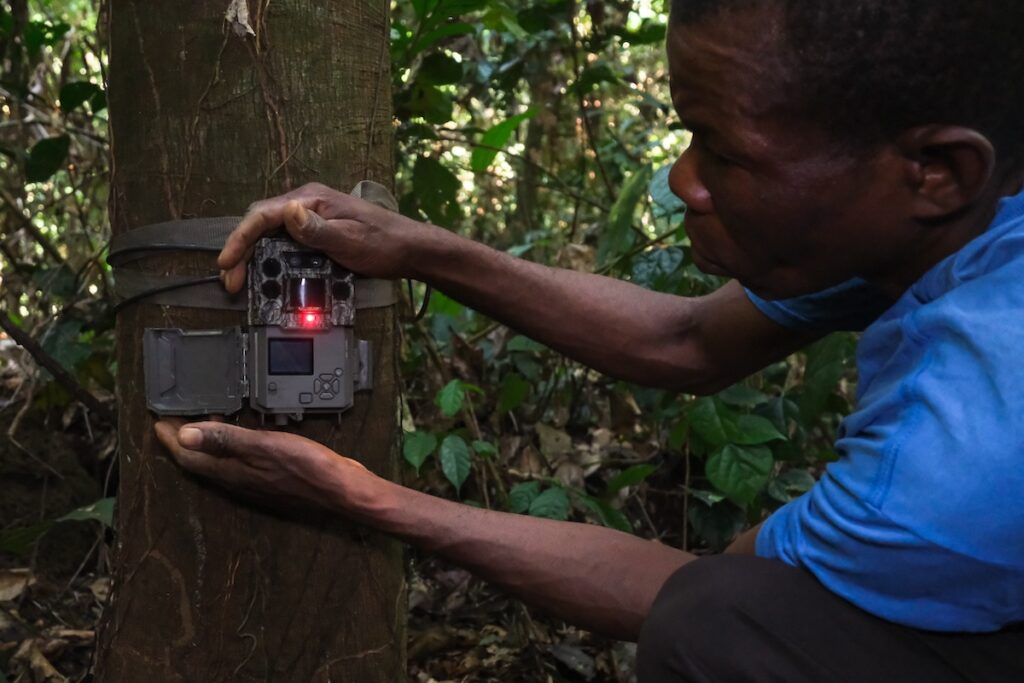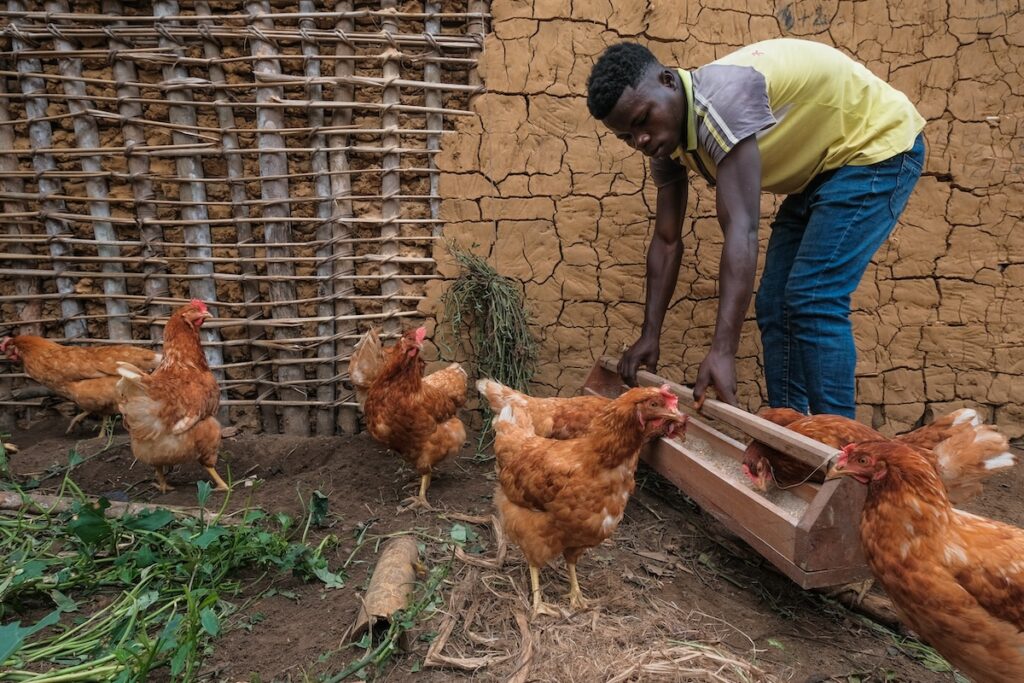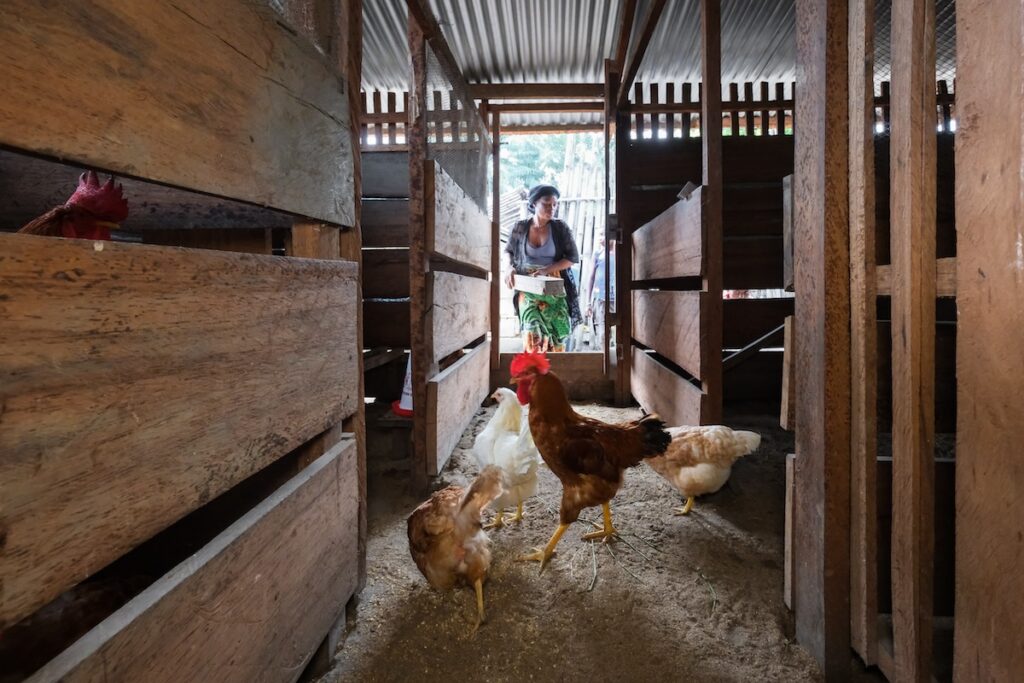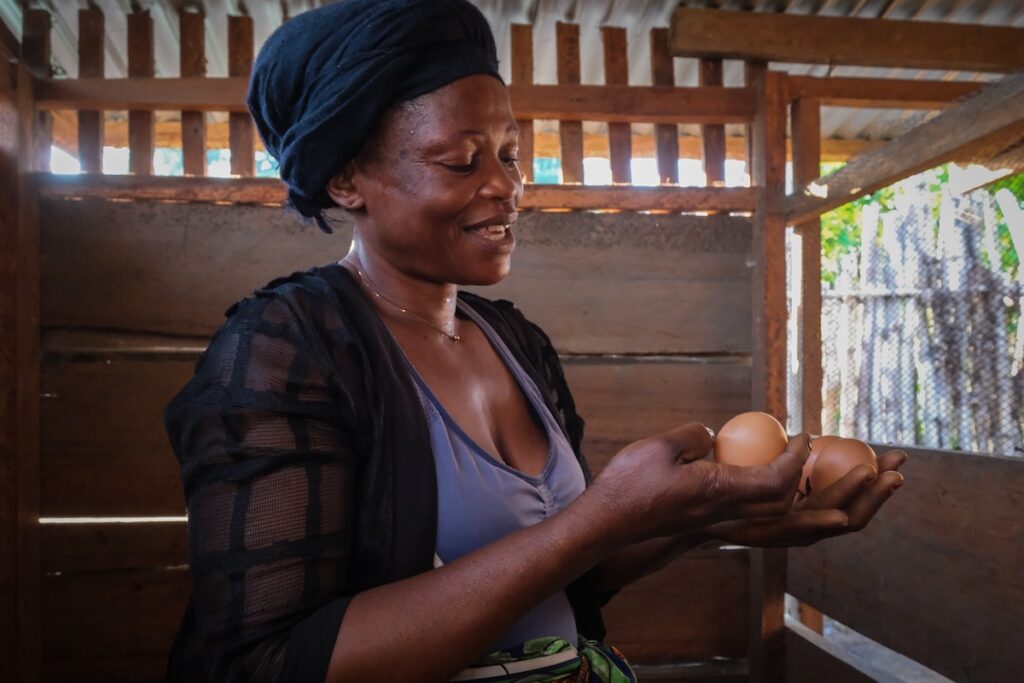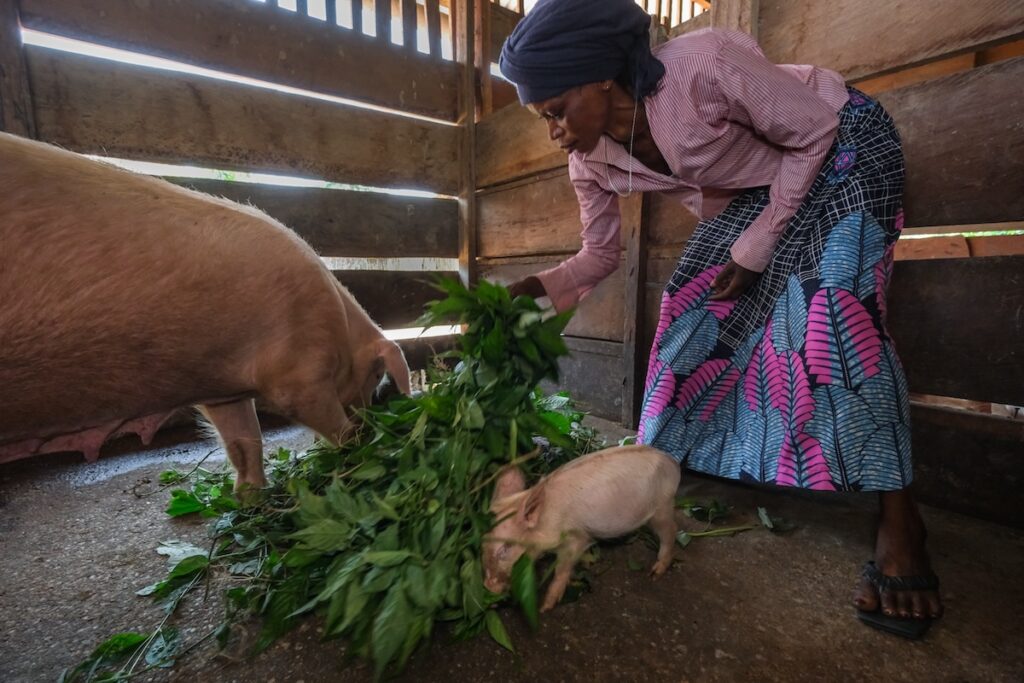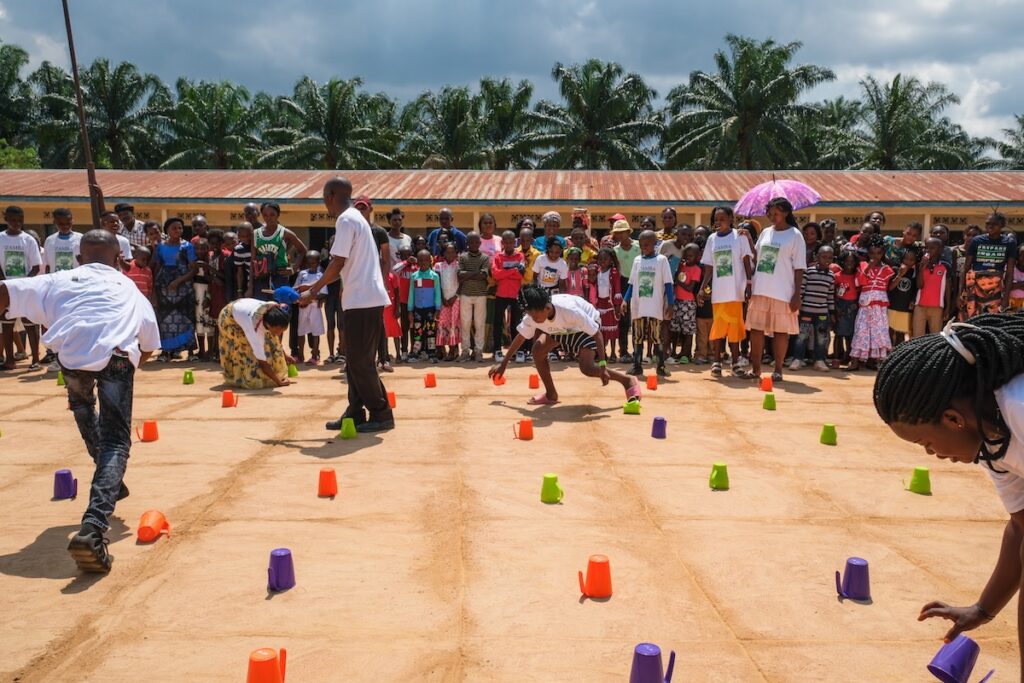
What we do
Our activities
Where we work
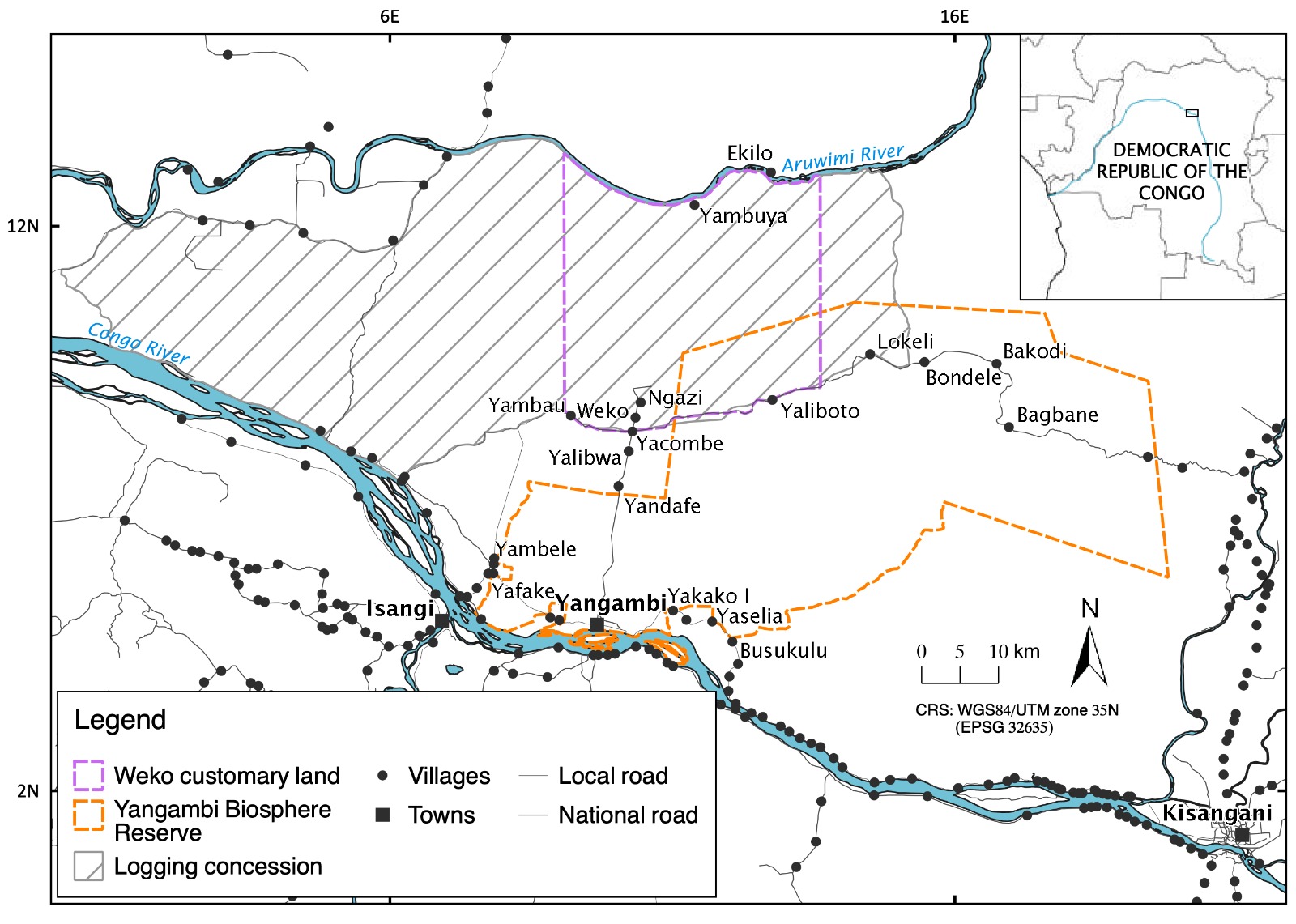
- We support stakeholders of the wildmeat value chain (hunters and traders) in bringing their activities to sustainable levels.
- We reduce the dependency on wild meat through the development of sustainable income-generating activities.
- We develop successful models for community-driven wildlife management
- We engage local communities in wildlife research and monitoring
- We foster good practices among the youngest generation through environmental education
Since 2023, SO WILD has partnered with the Center for International Forestry Research and World Agroforestry (CIFOR-ICRAF) and the FORETS project, an EU funded initiative, in the implementation of community-based sustainable wildlife management in the Yangambi landscape.
Wildlife monitoring:
Since 2018, SOWILD has collaborated with CIFOR-ICRAF to monitor medium and large-sized mammals in the Yangambi landscape using camera traps set out in a 4*4 km grid. Our work shows that the terrestrial mammal community in Yangambi is dominated by highly resilient small-sized species. Large ungulates and medium-sized carnivores have particularly low abundances in comparison to other conservation landscapes in the Congo Basin. However, we confirmed the presence of four species categorized as threatened on the IUCN Red List: the chimpanzee Pan troglodytes, giant ground pangolin Smutsia gigantea, black-bellied pangolin Phataginus tetradactyla and white-bellied pangolin Phataginus tricuspis. To know more, read our stories on the discovery of endangered chimpanzees and forest buffaloes using camera traps in the Yangambi Biosphere Reserve.
Micro-projects:
SOWILD, in collaboration with CIFOR-ICRAF, supports hunters and wildmeat traders in diversifying their sources of income to reduce their dependency on wildlife, through a wide range of income-generating activities. These include small-scale livestock production, agriculture, agro-processing, small-scale business, etc. We support our beneficiaries with technical capacities, financial training, market development, and micro-credit.
Behaviour change and environmental education:
SOWILD, in collaboration with CIFOR-ICRAF, has supported the creation of 12 clubs for environmental education in the Yangambi landscape. The clubs are called “Club Zamba”. We train teachers and develop educational material to mainstream care for the environment, using scientific and local knowledge. The club curriculum includes a program of ten sessions that cover different topics: understanding the functioning of ecosystems, identification of forest animals and birds, traditional and scientific techniques for studying forests and wildlife populations, and the sustainable use of resources. The aim of the Zamba clubs is also to train children to become agents of change in their community, building environmental leaders for the future. SOWILD also partners with theater companies to develop participatory theater as a communication means for behavioural change and develop radio programs to mainstream environmental education.
